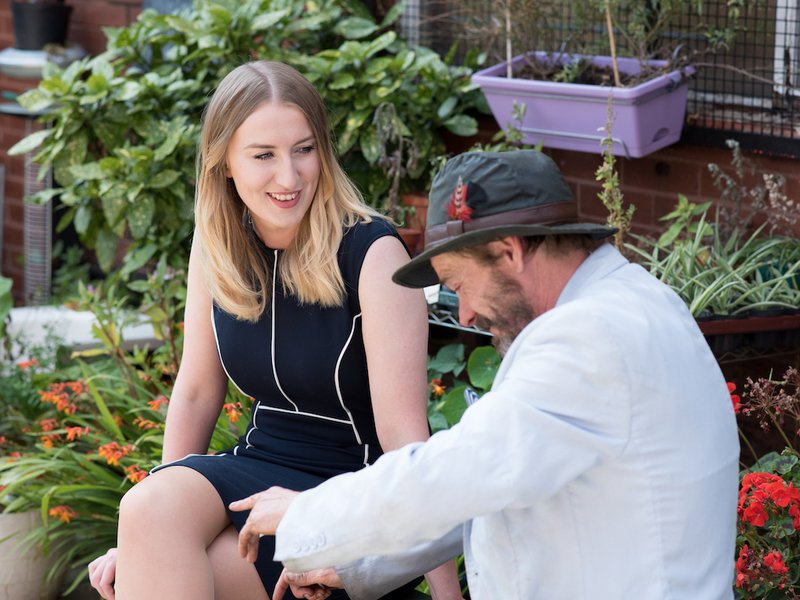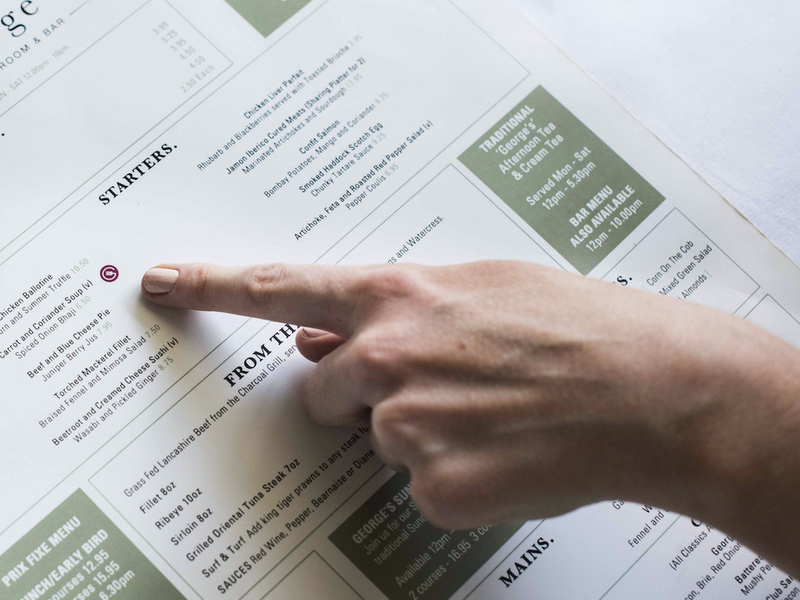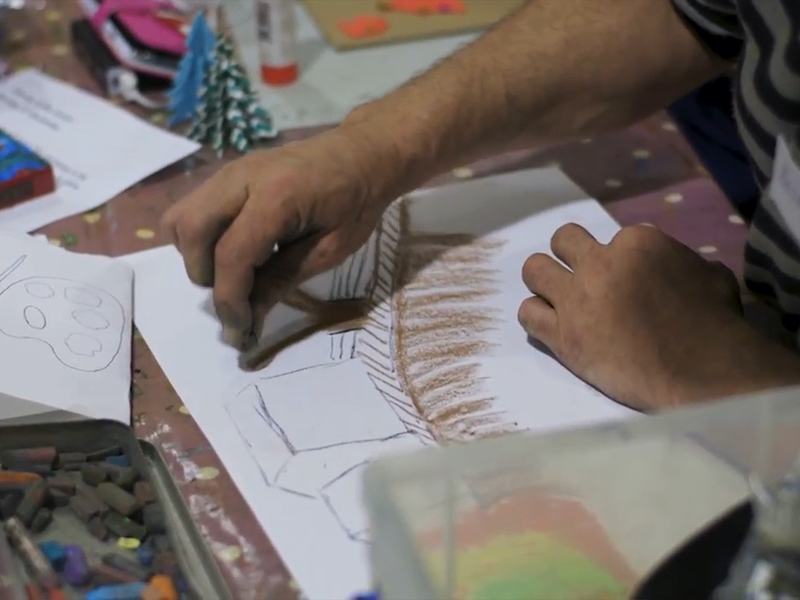Caroline Stevenson, founder of the award-winning Manchester based social enterprise, shares her plans for 2020
Caroline Stevenson was just 22 years old when she came up with the idea for Foodinate, a multi-award-winning social enterprise addressing food poverty and homelessness.
Launched in 2016 in Manchester, Foodinate is now a UK-wide project helping communities everywhere from Glasgow to Cardiff. It partners with restaurants (like The Alchemist, Proove Pizza and Hip Hop Chip Shop) and a network of grassroots community organisations to provide a hot meal for those in need.
In 2020, after four successful years and 150,000 meals donated by diners and restaurants, Caroline and Foodinate are launching their new Progress To Work project. We went along to the recent 'Celebrate With Foodinate' event to hear from some of the people involved.
It’s not only putting food on the table but it’s giving someone a different skill set and the confidence to do something that maybe they wouldn’t have done before
Britain is one of the richest countries in the world and yet we have a serious problem with poverty. Households that bring in 60% less than the UK median income - which in 2019 was £29,600 - are classed as living below the poverty line and there are 13 million of them in the UK. One in six parents in this country have gone without food themselves in order to feed their families. These are the kinds of statistics that Caroline says she “couldn’t wrap (her) head around”.
“I couldn’t walk through the city without seeing it with my own eyes. I found myself stopping at every street corner to offer change, a sandwich or a smile and a bit of conversation. I couldn’t turn a blind eye and keep walking.”
She felt angry and hopeless and a deep sense of urgency to do something. She realised that inner cities are full of people working long hours, often not earning a lot of money themselves. Many of these people want to do something to help those in more vulnerable circumstances but don’t feel they have the time, money or mental capacity to do anything.
There are hundreds of grassroots charity organisations like Mustard Tree and The Booth Centre working day in and day out in deprived communities around the UK to support people in need. With 85% of corporate giving still going to the top 30 highest revenue charities in the world, these smaller organisations doing vital work in our communities often miss out on funding.

Caroline came up with a simple idea to tie all these threads together and create an easy way for people and businesses to help. Foodinate would partner with restaurants that would then donate money to local charities every time somebody ordered a specific dish on their menu. These charities would use the donations to provide a hot, nourishing meal for someone in need. “Eat a meal, give a meal.”
But she had no money, contacts or experience. She quickly realised that it was ‘nigh on impossible’ to get people to listen to her, never mind get involved. But a lot of knocking on doors later, the first person to open the door and take her seriously was none other than Ryan Giggs whose restaurant George’s in Worsley came on board. They are still a partner and have generated almost 10,000 meals for people in need in Manchester. In 2018 the partnership extended to incorporate Giggs’ GG catering which includes The Bull & Bear and Hotel Football.
Giggs, who grew up in Salford and has witnessed the situation in the city centre like the rest of us, says what first drew him to Foodinate was the simplicity of it. He says he and his team at George’s were proud and delighted to get involved with Foodinate as it was something you could actually see was helping. Giggs has been to The Booth Centre and seen the work they do.
“It’s not only putting food on the table but it’s giving someone a different skill set and the confidence to do something that maybe they wouldn’t have done before,” he said.
Caroline believes that people working in hospitality understand better than most the connective power of food. “There’s a difference between me standing here very formally and talking to you with a clipboard and us sitting down and sharing a hot meal together, creating that common ground and that safe space around supportive people.”
Giggs says he has seen a hugely positive reaction from customers at his restaurants as well.
“We’ve had really good feedback. People want to help in their local community. With Foodinate people are making a difference by not having to do a lot. I think businesses have to make a conscious decision that they want to help. Whether it be in the local community or wider.
“If you have two similar restaurants to choose form you’re going to choose that restaurant that is making a difference.”

While a hot meal might be a pressing reason for someone who is struggling to visit a local centre like Mustard Tree or The Booth Centre, these places offer much more to people wanting to turn their lives around. People like poet and Invisible Cities tour guide Danny Collins who credits The Booth Centre with getting him back on his feet. People like the artists involved in the More Of Me exhibition - at the Celebrate With Foodinate event we attended - featuring self-portraits from participants from Mustard Tree using their own language to define their identity, rather than society reducing them to their circumstances.
Addiction therapy, housing assistance, benefits advice, CV writing workshops, therapy, arts classes, music classes are just some of the types of services that places like this offer. Foodinate report that 45% of those who enter to receive a meal also take part in activities which benefit them and 25% of those who start by receiving a meal go on to gain employment or nationally recognised qualifications.
Now Caroline wants to take her efforts further as Foodinate introduces its Progress To Work project, supporting those in need to gain the skills, confidence and motivation needed to reenter the workforce.
“When it comes to careers, we’re all familiar with the phrase, it’s not what you know, but who you know. But a lot of the people supported by Foodinate unfortunately don’t have a personal support network, let alone a professional one. These individuals often find themselves at a disadvantage when it comes to the job market. Overlooked by employers, not selected for interviews and ultimately becoming trapped in a cycle of welfare and rejection.”
But current figures show that the UK hospitality industry will be looking for around 1.3 million employees between now and 2024. The Brexit hospitality report outlines that nearly one in five hospitality managers are already finding recruitment harder compared to this time last year. Caroline hopes that the same hospitality partners that have donated the cost of a meal - and others - might be willing to go further for the people helped by Foodinate, offering mentorships, supported work experiences, interview practise and ultimately job opportunities for those who previously wouldn’t have been able to find work.

“Whether you want to provide a work placement for a week or your ops manager just wants to have someone shadow them for the day. Whether your team members want to deliver monthly workshops on a topic of their choosing, or your chef just wants to proudly give a tour of their working kitchen. Whether your HR person would be down for acting as a career coach for someone for an hour a month or they could offer someone interview practise as a one-off. No matter how big or small the involvement, the impact we can have together can be huge.”
If you’d like to get involved with Foodinate you can learn more here. If your business is interested in the Progress To Work project, you can register your interest here.















